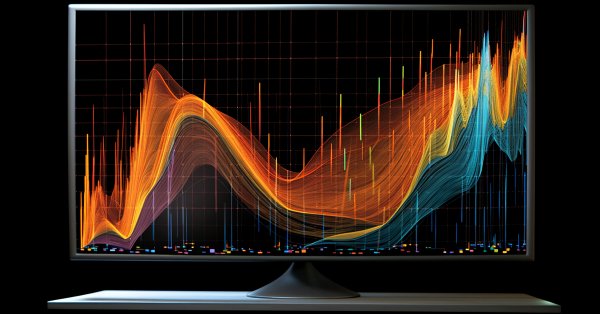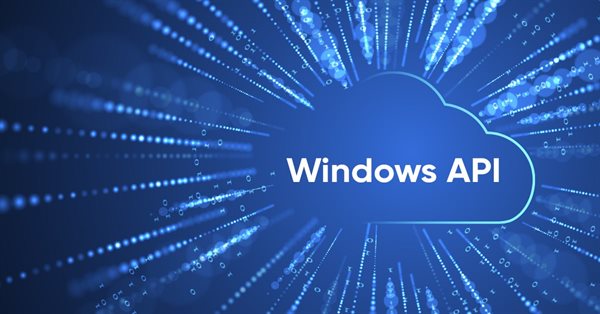
Developing graphical interfaces for Expert Advisors and indicators based on .Net Framework and C#
The article presents a simple and fast method of creating graphical windows using Visual Studio with subsequent integration into the Expert Advisor's MQL code. The article is meant for non-specialist audiences and does not require any knowledge of C# and .Net technology.

OpenCL: From Naive Towards More Insightful Programming
This article focuses on some optimization capabilities that open up when at least some consideration is given to the underlying hardware on which the OpenCL kernel is executed. The figures obtained are far from being ceiling values but even they suggest that having the existing resources available here and now (OpenCL API as implemented by the developers of the terminal does not allow to control some parameters important for optimization - particularly, the work group size), the performance gain over the host program execution is very substantial.


MetaTrader 5: Publishing trading forecasts and live trading statements via e-mail on blogs, social networks and dedicated websites
This article aims to present ready-made solutions for publishing forecasts using MetaTrader 5. It covers a range of ideas: from using dedicated websites for publishing MetaTrader statements, through setting up one's own website with virtually no web programming experience needed and finally integration with a social network microblogging service that allows many readers to join and follow the forecasts. All solutions presented here are 100% free and possible to setup by anyone with a basic knowledge of e-mail and ftp services. There are no obstacles to use the same techniques for professional hosting and commercial trading forecast services.


Developing stock indicators featuring volume control through the example of the delta indicator
The article deals with the algorithm of developing stock indicators based on real volumes using the CopyTicks() and CopyTicksRange() functions. Some subtle aspects of developing such indicators, as well as their operation in real time and in the strategy tester are also described.


LifeHack for traders: Blending ForEach with defines (#define)
The article is an intermediate step for those who still writes in MQL4 and has no desire to switch to MQL5. We continue to search for opportunities to write code in MQL4 style. This time, we will look into the macro substitution of the #define preprocessor.


Evaluation and selection of variables for machine learning models
This article focuses on specifics of choice, preconditioning and evaluation of the input variables (predictors) for use in machine learning models. New approaches and opportunities of deep predictor analysis and their influence on possible overfitting of models will be considered. The overall result of using models largely depends on the result of this stage. We will analyze two packages offering new and original approaches to the selection of predictors.


Managing the MetaTrader Terminal via DLL
The article deals with managing MetaTrader user interface elements via an auxiliary DLL library using the example of changing push notification delivery settings. The library source code and the sample script are attached to the article.


Using WinInet.dll for Data Exchange between Terminals via the Internet
This article describes the principles of working with the Internet via the use of HTTP requests, and data exchange between terminals, using an intermediate server. An MqlNet library class is presented for working with Internet resources in the MQL5 environment. Monitoring prices from different brokers, exchanging messages with other traders without exiting the terminal, searching for information on the Internet – these are just some examples, reviewed in this article.


Creating Multi-Expert Advisors on the basis of Trading Models
Using the object-oriented approach in MQL5 greatly simplifies the creation of multi-currency/multi-system /multi-time-frame Expert Advisors. Just imagine, your single EA trades on several dozens of trading strategies, on all of the available instruments, and on all of the possible time frames! In addition, the EA is easily tested in the tester, and for all of the strategies, included in its composition, it has one or several working systems of money management.


A DLL-free solution to communicate between MetaTrader 5 terminals using Named Pipes
The article describes how to implement Interprocess Communication between MetaTrader 5 client terminals using named pipes. For the use of the named pipes, the CNamedPipes class is developed. For the test of its use and to measure the connection throughput, the tick indicator, the server and client scripts are presented. The use of named pipes is sufficient for real-time quotes.


Exploring Trading Strategy Classes of the Standard Library - Customizing Strategies
In this article we are going to show how to explore the Standard Library of Trading Strategy Classes and how to add Custom Strategies and Filters/Signals using the Patterns-and-Models logic of the MQL5 Wizard. In the end you will be able easily add your own strategies using MetaTrader 5 standard indicators, and MQL5 Wizard will create a clean and powerful code and fully functional Expert Advisor.


Deep Neural Networks (Part I). Preparing Data
This series of articles continues exploring deep neural networks (DNN), which are used in many application areas including trading. Here new dimensions of this theme will be explored along with testing of new methods and ideas using practical experiments. The first article of the series is dedicated to preparing data for DNN.

Continuous Walk-Forward Optimization (Part 1): Working with Optimization Reports
The first article is devoted to the creation of a toolkit for working with optimization reports, for importing them from the terminal, as well as for filtering and sorting the obtained data. MetaTrader 5 allows downloading optimization results, however our purpose is to add our own data to the optimization report.


Deep Neural Networks (Part VIII). Increasing the classification quality of bagging ensembles
The article considers three methods which can be used to increase the classification quality of bagging ensembles, and their efficiency is estimated. The effects of optimization of the ELM neural network hyperparameters and postprocessing parameters are evaluated.


MetaTrader 4 Expert Advisor exchanges information with the outside world
A simple, universal and reliable solution of information exchange between МetaТrader 4 Expert Advisor and the outside world. Suppliers and consumers of the information can be located on different computers, the connection is performed through the global IP addresses.


Deep Neural Networks (Part IV). Creating, training and testing a model of neural network
This article considers new capabilities of the darch package (v.0.12.0). It contains a description of training of a deep neural networks with different data types, different structure and training sequence. Training results are included.

Applying network functions, or MySQL without DLL: Part I - Connector
MetaTrader 5 has received network functions recently. This opened up great opportunities for programmers developing products for the Market. Now they can implement things that required dynamic libraries before. In this article, we will consider them using the implementation of the MySQL as an example.

950 websites broadcast the Economic Calendar from MetaQuotes
The widget provides websites with a detailed release schedule of 500 indicators and indices, of the world's largest economies. Thus, traders quickly receive up-to-date information on all important events with explanations and graphs in addition to the main website content.


Deep Neural Networks (Part VII). Ensemble of neural networks: stacking
We continue to build ensembles. This time, the bagging ensemble created earlier will be supplemented with a trainable combiner — a deep neural network. One neural network combines the 7 best ensemble outputs after pruning. The second one takes all 500 outputs of the ensemble as input, prunes and combines them. The neural networks will be built using the keras/TensorFlow package for Python. The features of the package will be briefly considered. Testing will be performed and the classification quality of bagging and stacking ensembles will be compared.


Automatic Selection of Promising Signals
The article is devoted to the analysis of trading signals for the MetaTrader 5 platform, which enable the automated execution of trading operations on subscribers' accounts. Also, the article considers the development of tools, which help search for potentially promising trading signals straight from the terminal.


OpenCL: The Bridge to Parallel Worlds
In late January 2012, the software development company that stands behind the development of MetaTrader 5 announced native support for OpenCL in MQL5. Using an illustrative example, the article sets forth the programming basics in OpenCL in the MQL5 environment and provides a few examples of the naive optimization of the program for the increase of operating speed.


Cross-Platform Expert Advisor: Money Management
This article discusses the implementation of money management method for a cross-platform expert advisor. The money management classes are responsible for the calculation of the lot size to be used for the next trade to be entered by the expert advisor.

Optimization management (Part II): Creating key objects and add-on logic
This article is a continuation of the previous publication related to the creation of a graphical interface for optimization management. The article considers the logic of the add-on. A wrapper for the MetaTrader 5 terminal will be created: it will enable the running of the add-on as a managed process via C#. In addition, operation with configuration files and setup files is considered in this article. The application logic is divided into two parts: the first one describes the methods called after pressing a particular key, while the second part covers optimization launch and management.

Continuous Walk-Forward Optimization (Part 4): Optimization Manager (Auto Optimizer)
The main purpose of the article is to describe the mechanism of working with our application and its capabilities. Thus the article can be treated as an instruction on how to use the application. It covers all possible pitfalls and specifics of the application usage.

Visualize this! MQL5 graphics library similar to 'plot' of R language
When studying trading logic, visual representation in the form of graphs is of great importance. A number of programming languages popular among the scientific community (such as R and Python) feature the special 'plot' function used for visualization. It allows drawing lines, point distributions and histograms to visualize patterns. In MQL5, you can do the same using the CGraphics class.


A DLL for MQL5 in 10 Minutes (Part II): Creating with Visual Studio 2017
The original basic article has not lost its relevance and thus if you are interested in this topic, be sure to read the first article. However much time has passed since then, so the current Visual Studio 2017 features an updated interface. The MetaTrader 5 platform has also acquired new features. The article provides a description of dll project development stages, as well as DLL setup and interaction with MetaTrader 5 tools.


How to Export Quotes from МetaTrader 5 to .NET Applications Using WCF Services
Want to organize export of quotes from MetaTrader 5 to your own application? The MQL5-DLL junction allows to create such solutions! This article will show you one of the ways to export quotes from MetaTrader 5 to applications written in .NET. For me it was more interesting, rational and easy to implement export of quotes using this very platform. Unfortunately, version 5 still does not support .NET, so like in old days we will use win32 dll with .NET support as an interlayer.


Native Twitter Client: Part 2
A Twitter client implemented as MQL class to allow you to send tweets with photos. All you need is to include a single self contained include file and off you go to tweet all your wonderful charts and signals.


Finding Errors and Logging
MetaEditor 5 has the debugging feature. But when you write your MQL5 programs, you often want to display not the individual values, but all messages that appear during testing and online work. When the log file contents have large size, it is obvious to automate quick and easy retrieval of required message. In this article we will consider ways of finding errors in MQL5 programs and methods of logging. Also we will simplify logging into files and will get to know a simple program LogMon for comfortable viewing of logs.


Comparing speeds of self-caching indicators
The article compares the classic MQL5 access to indicators with alternative MQL4-style methods. Several varieties of MQL4-style access to indicators are considered: with and without the indicator handles caching. Considering the indicator handles inside the MQL5 core is analyzed as well.

Practical application of neural networks in trading. Python (Part I)
In this article, we will analyze the step-by-step implementation of a trading system based on the programming of deep neural networks in Python. This will be performed using the TensorFlow machine learning library developed by Google. We will also use the Keras library for describing neural networks.


Universal Expert Advisor: Trading Modes of Strategies (Part 1)
Any Expert Advisor developer, regardless of programming skills, is daily confronted with the same trading tasks and algorithmic problems, which should be solved to organize a reliable trading process. The article describes the possibilities of the CStrategy trading engine that can undertake the solution of these tasks and provide a user with convenient mechanism for describing a custom trading idea.

WebSockets for MetaTrader 5 — Using the Windows API
In this article, we will use the WinHttp.dll to create a WebSocket client for MetaTrader 5 programs. The client will ultimately be implemented as a class and also tested against the Deriv.com WebSocket API.

Continuous Walk-Forward Optimization (Part 5): Auto Optimizer project overview and creation of a GUI
This article provides further description of the walk-forward optimization in the MetaTrader 5 terminal. In previous articles, we considered methods for generating and filtering the optimization report and started analyzing the internal structure of the application responsible for the optimization process. The Auto Optimizer is implemented as a C# application and it has its own graphical interface. The fifth article is devoted to the creation of this graphical interface.

Controlled optimization: Simulated annealing
The Strategy Tester in the MetaTrader 5 trading platform provides only two optimization options: complete search of parameters and genetic algorithm. This article proposes a new method for optimizing trading strategies — Simulated annealing. The method's algorithm, its implementation and integration into any Expert Advisor are considered. The developed algorithm is tested on the Moving Average EA.

Continuous Walk-Forward Optimization (Part 2): Mechanism for creating an optimization report for any robot
The first article within the Walk-Through Optimization series described the creation of a DLL to be used in our auto optimizer. This continuation is entirely devoted to the MQL5 language.


Bi-Directional Trading and Hedging of Positions in MetaTrader 5 Using the HedgeTerminal Panel, Part 1
This article describes a new approach to hedging of positions and draws the line in the debates between users of MetaTrader 4 and MetaTrader 5 about this matter. The algorithms making such hedging reliable are described in layman's terms and illustrated with simple charts and diagrams. This article is dedicated to the new panel HedgeTerminal, which is essentially a fully featured trading terminal within MetaTrader 5. Using HedgeTerminal and the virtualization of the trade it offers, positions can be managed in the way similar to MetaTrader 4.


Cross-Platform Expert Advisor: Signals
This article discusses the CSignal and CSignals classes which will be used in cross-platform expert advisors. It examines the differences between MQL4 and MQL5 on how particular data needed for evaluation of trade signals are accessed to ensure that the code written will be compatible with both compilers.

SQL and MQL5: Working with SQLite Database
This article is intended for developers who would be interested in using SQL in their projects. It explains the functionality and advantages of SQLite. The article does not require special knowledge of SQLite functions, yet minimum understanding of SQL would be beneficial.


Cross-Platform Expert Advisor: Time Filters
This article discusses the implementation of various methods of time filtering a cross-platform expert advisor. The time filter classes are responsible for checking whether or not a given time falls under a certain time configuration setting.